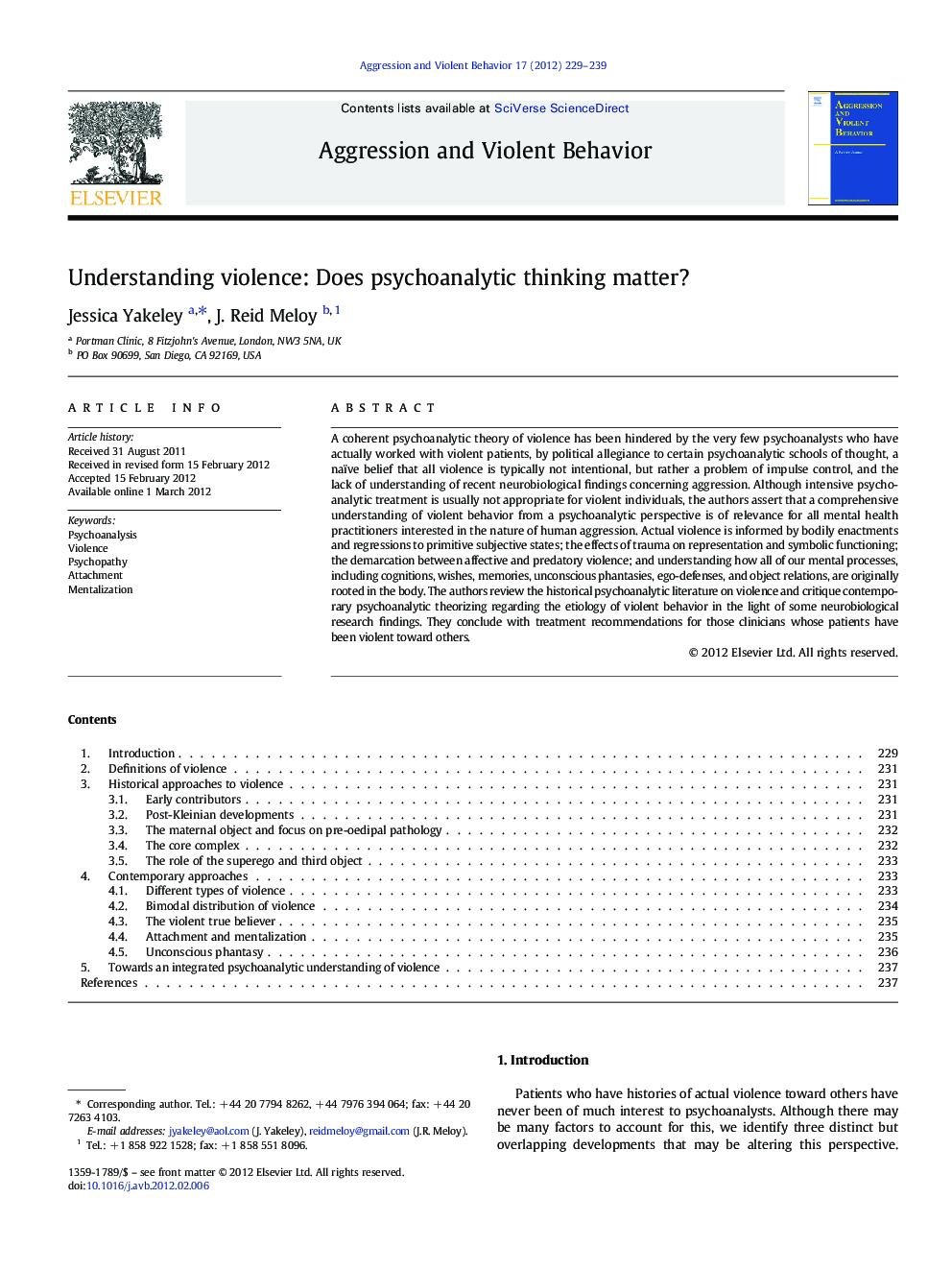| کد مقاله | کد نشریه | سال انتشار | مقاله انگلیسی | نسخه تمام متن |
|---|---|---|---|---|
| 94622 | 160314 | 2012 | 11 صفحه PDF | دانلود رایگان |

A coherent psychoanalytic theory of violence has been hindered by the very few psychoanalysts who have actually worked with violent patients, by political allegiance to certain psychoanalytic schools of thought, a naïve belief that all violence is typically not intentional, but rather a problem of impulse control, and the lack of understanding of recent neurobiological findings concerning aggression. Although intensive psychoanalytic treatment is usually not appropriate for violent individuals, the authors assert that a comprehensive understanding of violent behavior from a psychoanalytic perspective is of relevance for all mental health practitioners interested in the nature of human aggression. Actual violence is informed by bodily enactments and regressions to primitive subjective states; the effects of trauma on representation and symbolic functioning; the demarcation between affective and predatory violence; and understanding how all of our mental processes, including cognitions, wishes, memories, unconscious phantasies, ego-defenses, and object relations, are originally rooted in the body. The authors review the historical psychoanalytic literature on violence and critique contemporary psychoanalytic theorizing regarding the etiology of violent behavior in the light of some neurobiological research findings. They conclude with treatment recommendations for those clinicians whose patients have been violent toward others.
► Psychoanalytic theory contributes to the understanding of violent behavior.
► We propose a multi-dimensional object relations model for understanding violence.
► We address the neurobiology of violence, and its bimodality as affective or predatory.
► Important factors causing violence are loss, trauma and attachment deficits or disruptions.
► We also examine the role of the internal world, superego, mentalization, and fantasy.
Journal: Aggression and Violent Behavior - Volume 17, Issue 3, May–June 2012, Pages 229–239